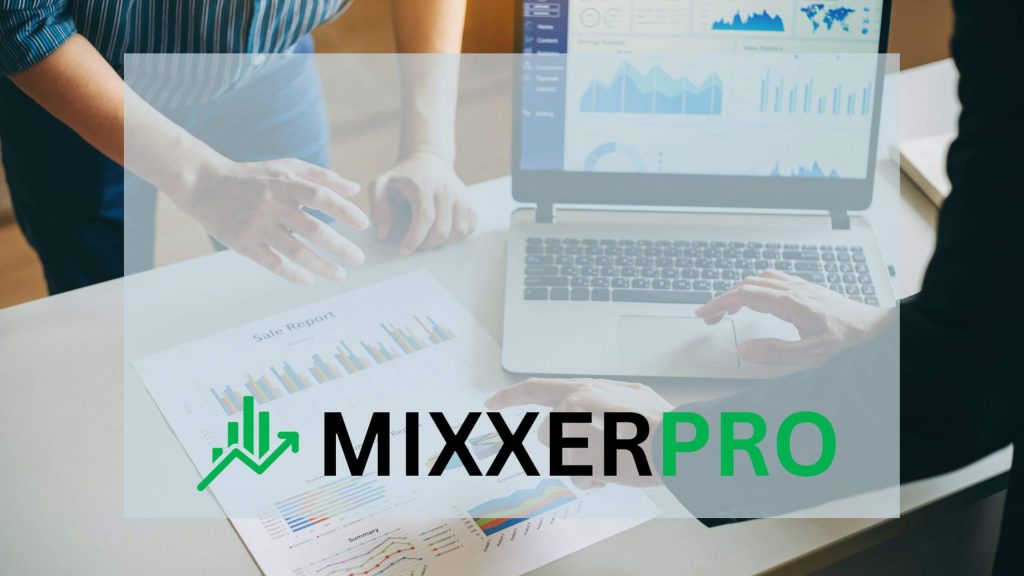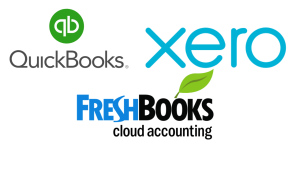Accounting tips for small business owners
Accounting tips for small business owners include keeping accurate records, tracking expenses, and consulting with a professional accountant. By following these tips, small business owners can ensure financial stability and legal compliance.
Running a small business comes with challenges, and managing the financials effectively is one of the most crucial aspects. As a small business owner, having a solid understanding of accounting principles is essential to ensure your venture’s success.
Accurate and organized financial records help you make informed decisions and prevent potential legal and economic issues. We will provide you with expert accounting tips that can help streamline your small business’s financial management, ensuring stability and compliance. From keeping meticulous records to tracking expenses and seeking professional advice when needed, these tips will set you on the path to financial success. So, let’s delve into the accounting world and discover strategies to make your business thrive.
Table of Contents
The Importance Of Effective Accounting In Small Businesses
Practical accounting is crucial for small businesses as it helps them track their finances, make informed decisions, and ensure compliance with tax regulations. Small business owners can benefit from following accounting tips to streamline their processes and optimize their financial management.
Understand How Effective Accounting Can Impact Your Small Business Success
Practical accounting is crucial to the success of small businesses. It goes beyond simply keeping track of financial transactions and expenses. By understanding how effective accounting practices can impact your business, you can make informed decisions that optimize your operations, drive growth, and ultimately contribute to your success.
One key aspect of practical accounting is maintaining accurate financial records. These records provide a clear picture of your business’s financial health, helping you understand where your money is coming from and where it is going. With up-to-date and accurate financial information at your fingertips, you can identify trends, spot potential issues, and make data-driven decisions.
Discover How Accurate Financial Records Can Help With Decision-making
The availability of accurate financial records empowers small business owners to make informed decisions. By clearly understanding your revenue, expenses, and cash flow, you can evaluate the financial impact of different choices and strategies. This allows you to allocate resources effectively, prioritize investments, and identify areas for cost-cutting or optimization.
Accurate financial records also play a crucial role in monitoring and evaluating your business’s performance. By comparing actual financial results against your goals and projections, you can assess where your business stands and make necessary adjustments to stay on track or seize new opportunities.
Furthermore, accurate financial records can help you assess the profitability of different products or services. By analyzing your sales data alongside associated costs, you can determine which offerings generate the most revenue and which may require adjustments to improve profitability.
To ensure accurate financial records, utilize accounting software or hire a professional accountant who can handle the complexities of small business finances. They can help you streamline your processes, implement best practices, and provide expert financial guidance.
Tips For Organizing Your Business Finances
Get your small business finances in order with these essential accounting tips. From keeping track of expenses to staying on top of taxes, these strategies will help you effectively manage your business’s financial health.
Implementing A Streamlined Bookkeeping System
Implementing a streamlined bookkeeping system is one of the most crucial aspects of organizing your business finances. This system provides a clear structure to track your income, expenses, and other financial transactions, helping you maintain accurate records.
When it comes to bookkeeping, simplicity is critical. Keeping your system straightforward lets you easily manage your finances without getting overwhelmed. Here are some tips for implementing a streamlined bookkeeping system:
- Separate Business and Personal Finances: Open a dedicated business bank account to separate your personal and business transactions. This will help you track your business expenses accurately and simplify your bookkeeping process.
- Track Income and Expenses: Regularly record all your income and expenses. Capture details like dates, amounts, and descriptions. This will provide an organized record of your financial transactions and make it more accessible during tax time.
- Use Accounting Software: Invest in reliable accounting software to streamline your bookkeeping. With the help of cloud-based tools like QuickBooks or Xero, you can automate tasks, generate financial reports, and stay on top of your business finances.
- Maintain Proper Documentation: Keep copies of all invoices, receipts, and financial documents. Maintaining proper documentation will help you track expenses, substantiate deductions, and ensure compliance with tax regulations.
- Reconcile Accounts Regularly: Regularly reconcile your bank accounts, credit cards, and other financial statements. This process ensures that your records are accurate and up to date, minimizing errors and discrepancies.
Automating Financial Processes For Efficiency
To keep your business finances organized and efficient, automating financial processes is a game-changer. Automating repetitive tasks and using technology to streamline your financial operations saves time, reduces human error, and improves overall efficiency. Here are some key areas where you can automate:
- Invoicing: Automate your invoicing process to save time and ensure prompt payment. With online invoicing tools, you can create professional invoices, set up recurring invoices, and send automatic reminders for outstanding payments.
- Expense Tracking: Expense tracking apps or expense management software to automate expense recording. These tools allow you to capture receipts, categorize expenses, and generate expense reports effortlessly.
- Bank Reconciliations: Automate your bank reconciliations using accounting software instead of manually matching transactions. This will help you quickly identify discrepancies or errors, saving significant time and effort.
- Payroll Management: Streamline your payroll process by using payroll software. This will automate calculating salaries, tax deductions, and generating payslips. It ensures accuracy and compliance with payroll regulations.
- Financial Reporting: Leverage the power of financial reporting tools to automate the generation of critical reports such as profit and loss statements, balance sheets, and cash flow statements. These reports provide valuable insights into your business’s financial health.
By embracing automation, you can simplify your financial processes, save time, and focus on growing your business.
Maximizing Tax Savings For Small Businesses
One of the critical responsibilities of small business owners is managing their finances effectively and maximizing tax savings. Small business owners can significantly reduce their tax liability and keep more money in their pockets by taking advantage of tax deductions, incentives, and credits. This post will explore two strategies to help small business owners maximize their tax savings: identifying deductible expenses and utilizing tax incentives and credits.
Identifying Deductible Expenses
When it comes to minimizing your tax bill, identifying deductible expenses is crucial. Deductible expenses are ordinary and necessary costs directly related to your business operations. By deducting these expenses from your taxable income, you can effectively reduce your tax liability. Here are some common deductible expenses for small businesses:
| Expense Category | Examples |
| Office Supplies | Paper, pens, printer ink |
| Advertising and Marketing | Website design, social media ads |
| Business Travel | Airfare, hotel accommodations |
| Professional Services | Accounting fees, legal fees |
| Insurance Premiums | General liability insurance |
- Remember to keep detailed records and receipts of all your business expenses for tax purposes.
- Consult with a tax professional or accountant to ensure you are correctly identifying and deducting eligible expenses.
Utilizing Tax Incentives And Credits
In addition to deductible expenses, small business owners can also take advantage of various tax incentives and credits to reduce their tax burden. These incentives are designed to promote specific business activities or industries and can provide significant tax savings. Here are some examples:
- Research and Development (R&D) Tax Credit: This credit encourages businesses to invest in research and development activities to drive innovation and growth. If your business conducts eligible R&D activities, you may be eligible for a tax credit.
- Small Business Health Care Tax Credit: This credit is available to small businesses that provide health insurance to their employees. By offering health coverage, you may qualify for a tax credit to offset some of the premiums paid.
- Energy-Efficient Property Tax Credit: If your business invests in energy-efficient property or equipment, you may be eligible for a tax credit. This credit aims to promote sustainability and reduce energy consumption.
Take the time to research and understand the tax incentives and credits that apply to your industry and business activities. You can maximize your tax savings and optimize your financial position by leveraging these opportunities.
Credit: www.shopify.com
Cash Flow Management Strategies For Small Businesses
Effective cash flow management is crucial for the success of any small business. As a small business owner, it is essential to understand and implement strategies that can help you maintain a healthy cash flow. By creating a cash flow forecast and implementing strategies to improve cash flow, you can ensure that your business has enough cash to cover expenses and grow.
Creating A Cash Flow Forecast
A cash flow forecast is a projection of your business’s cash inflows and outflows over a specific period. It lets you anticipate potential cash shortages or surpluses, helping you make informed decisions and plan accordingly. Here are the steps to create a cash flow forecast:
- 1. Analyze Historical Data: Review your past cash flow statements and financial records. Identify patterns and trends to understand your business’s cash flow patterns.
- 2. Estimate Future Cash flows: Determine the sources of your cash inflow, such as sales revenue, loans, or investments. Make realistic estimates based on market trends and historical data.
- 3. Project Cash Outflows: Identify and list all the cash outflows, including expenses like rent, utilities, payroll, inventory, and loan repayments. Consider both recurring and one-time expenses.
- 4. Calculate Net Cash Flow: Calculate the net cash flow by subtracting the cash outflows from the cash inflows. This will give you an overview of your business’s cash position.
- 5. Review and Adjust: Regularly review and compare your cash flow forecast with the actual cash flow. Make adjustments as necessary to ensure accuracy.
Implementing Strategies To Improve Cash Flow

After creating a cash flow forecast, it’s time to implement strategies to improve your cash flow. Here are some effective strategies to consider:
- 1. Reduce Expenses: Identify areas where you can cut costs without compromising the quality of your products or services. Negotiate with suppliers for better deals, review your utility bills, and consider outsourcing non-essential tasks.
- 2. Accelerate Cash Inflows: Encourage prompt payments from your customers by offering discounts for early payments or implementing a clear invoicing and payment system.
- 3. Manage Inventory: Avoid overstocking inventory by analyzing sales data and forecasting demand. Optimize your inventory management system to ensure you have the right stock on hand.
- 4. Control Credit Terms: If you offer credit to your customers, establish clear credit terms and monitor outstanding invoices regularly. Consider implementing stricter credit policies to reduce the risk of late or non-payments.
- 5. Improve Accounts Receivable: Follow up on overdue payments promptly and consistently. Consider offering incentives for early payments and establishing penalties for late payments.
Leveraging Financial Data For Growth And Expansion
As a small business owner, understanding your financial data is crucial for making informed decisions that drive growth and expansion. By analyzing your financial statements and leveraging their insights, you can identify trends, spot opportunities, and optimize your business strategies. This article will explore how to effectively analyze financial statements to identify trends and discuss how leveraging financial data can help you make informed business decisions.
Analyzing Financial Statements To Identify Trends
Financial statements, such as the income, balance, and cash flow statements, provide a snapshot of your business’s financial performance and position. Analyzing these statements can help you identify trends impacting your business’s growth potential.
One way to analyze financial statements is by comparing them over time. By examining statements from different periods, you can identify trends in revenue growth, expenses, and profitability. For example, if your revenue has steadily increased over the past few quarters, this indicates positive growth. On the other hand, if expenses have been consistently rising without a significant increase in revenue, it may be a sign that cost management needs to be addressed.
Another method of analyzing financial statements is by conducting vertical and horizontal analysis. Vertical analysis compares each line item on a financial statement to a joint base, typically expressed as a percentage. This helps you see the relative proportions of different components and identify any significant changes. Horizontal analysis, on the other hand, compares financial statements for multiple periods side by side. This allows you to spot year-over-year changes and assess the overall direction of your business.
Leveraging Financial Data To Make Informed Business Decisions
Once you have analyzed your financial statements and identified trends, it’s time to leverage that data to make informed business decisions. The insights gained from financial data can guide you in pricing strategies, resource allocation, and investment opportunities.
Pricing Strategies: By understanding your costs and profit margins, you can adjust your pricing strategy to maximize profitability. Analyzing customer trends, such as buying patterns and preferences, can help you determine optimal pricing levels that balance revenue generation and customer satisfaction.
Resource Allocation: Financial data can help you identify areas of your business that generate high returns and those that may need improvement. You can drive growth and eliminate wasteful spending by reallocating resources to the most profitable areas.
Investment Opportunities: Leveraging financial data enables you to identify investment opportunities that align with your business goals. Whether expanding your product line, entering new markets, or acquiring other businesses, the data can guide you in evaluating the feasibility and potential return on investment for various opportunities.
Ultimately, leveraging financial data empowers you as a small business owner to make strategic decisions that fuel growth and expansion. By analyzing your financial statements and using the insights garnered, you can stay ahead of the competition, optimize your operations, and take calculated risks that lead to long-term success.
Frequently Asked Questions For Accounting Tips For Small Business Owners
What Do Small Business Owners Need To Know About Accounting?
Small business owners should understand basic accounting principles to manage finances effectively. They must record all business transactions, keep track of income and expenses, and reconcile bank statements. This will help them make informed financial decisions and meet tax obligations.
Can Small Business Owners Do Their Accounting?
Yes, small business owners can do their accounting. It helps them save money and gain better control over their finances. They can use accounting software or hire a freelance bookkeeper for assistance. Learning accounting basics and staying organized is essential to ensure accurate records.
How To Learn Basic Accounting For Small Business?
Learn basic accounting for small businesses by taking online courses, attending workshops, or reading books on accounting principles. Practice using accounting software like QuickBooks and Excel. Familiarize yourself with financial statements, balance sheets, and income statements. Keep accurate records and seek help from professionals if needed.
What Should An Accountant Do For A Small Business?
An accountant for a small business handles financial matters, such as bookkeeping, tax preparation, and financial analysis. They ensure accurate and organized records, help with compliance, and provide insights to improve the business’s financial health.
Conclusion
These accounting tips offer valuable guidance for small business owners seeking to optimize their financial management. Businesses can maintain a healthy financial position by understanding the role of accurate record-keeping, utilizing technology, prioritizing regular financial reviews, seeking professional advice when needed, and staying organized.
Implementing these strategies will improve their decision-making and contribute to overall growth and success. Embracing these accounting practices is vital for small businesses’ long-term sustainability.




